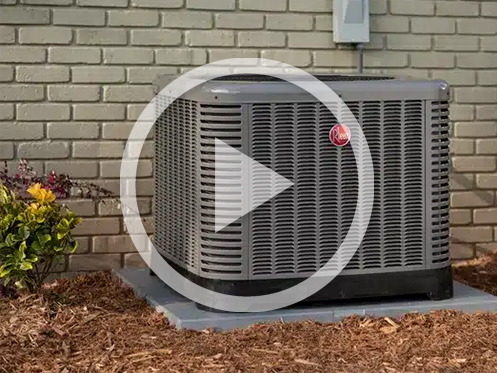Updated January 17, 2024
Innovations in the heating and cooling industry have led to some great options for homeowners when it comes to cooling their homes. Air conditioning systems like ductless air conditioners, solar power-based air conditioners, geothermal and more have opened the door to whole-home air conditioning systems that offer cooling, energy efficiency, and flexibility like never before. So how do you choose between a traditional system and a geothermal air conditioning system for your Des Moines property? Work with a professional like the ones at Golden Rule, and carefully review your options.
How Do the Systems Work?
Once you’ve narrowed your options down to choosing either a split-system air conditioner or a geothermal one, the first step is understanding how each system works:
Geothermal
A geothermal air conditioning system utilizes and harnesses the steady temperature of the ground beneath the frost line to provide both heating and cooling to your home. By placing a geothermal loop system into the ground of your property and a geothermal heat pump inside your home, the heat pump sucks the heat from inside your home and pumps it into the biggest “heat sink” of all—the earth. When heating your home, the cycle is reversed. Geothermal systems can use ductwork or ductless blowers to supply the cool air.
Centralized ACs
Centralized air conditioners, such as split-system or ductless mini split-systems, are closed systems that use a compressor, condenser, and evaporator to create and deliver cool air. These systems operate using an outdoor unit that houses the compressor and condenser components while the indoor unit or units deliver the cool air (for a traditional split-system, this is a single indoor unit that uses ductwork and for a ductless, it is through individual blowers). Refrigerant is a key part of these systems as no cool air can be created without it.
Differences between Geothermal and Traditional Air Conditioners
The first and most obvious, difference between the two systems is in the mechanics of how each works. They each create and deliver cool air but do it very differently from one another. Second, the physical set-up of each system is very different. Third, the initial costs to install each system (not including ductwork if needed) are something to consider: a geothermal system is about 1.5 times more expensive to install than a traditional central AC. That leads us to a fourth difference, which is where you may save money: while today’s traditional centralized systems are very energy efficient, a geothermal system can save you 30-50% on your monthly utility bills for the life of the system (which is over 20 years on the heat pump, 50 for the loop), and geothermal systems do not require the same amount of maintenance and repairs that a traditional split-system can.
Which is better for My Home?
The best way to answer this question is to work with a professional to determine how much cooling your home will need to be comfortable, and from there, which system will work best for your home. Your air conditioning needs to last a long time, so call a Golden Rule specialist to see which air conditioner will work best for you. Contact us for professional air conditioning services in Des Moines.
Contact Us Today for Heating & Cooling Service!
If you found this post helpful, learn what happens if you don’t change your air filter:




